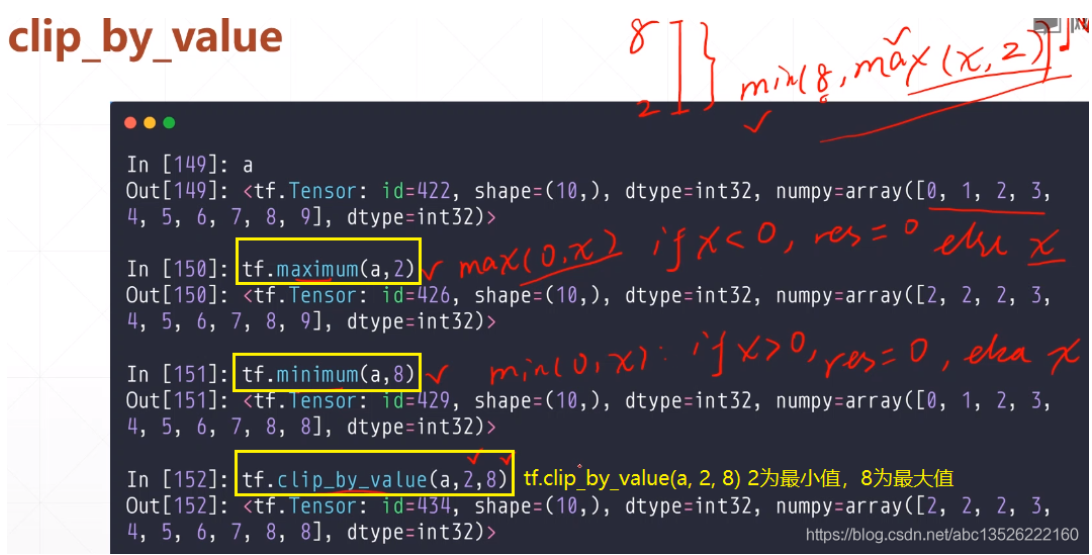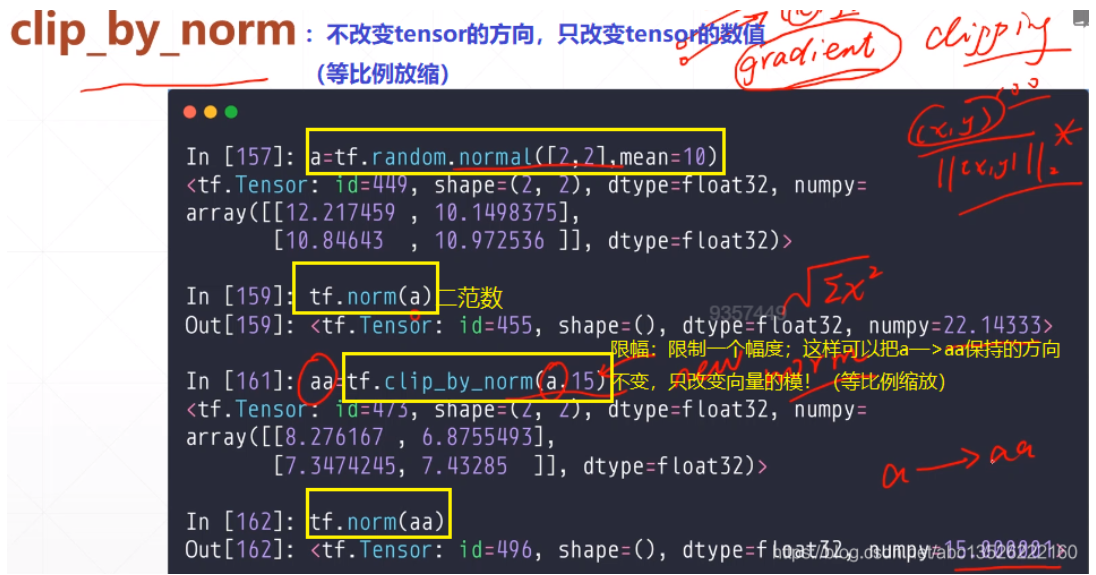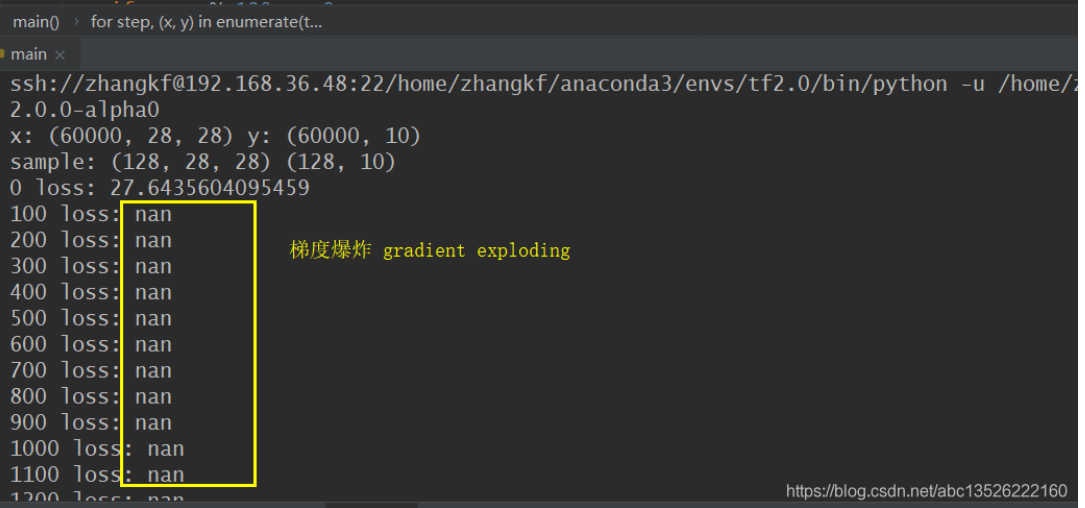tensorflow(十六):张量的限幅(tf.clip_by_value()、 tf.clip_by_norm()、 tf.clip_by_global_norm())
一、tf.clip_by_value()限幅


二、tf.clip_by_norm()根据范数裁剪
- 等比例缩放,只改变模值大小,不改变方向!

三、tf.clip_by_global_norm()梯度整体同比例缩放

梯度爆炸:就是梯度值太大了,每一次前进的步长太长了,导致不停的来回震荡!
梯度消失:就是梯度的值太小了,每一次前进基本没什么变化,导致loss的值长时间不动。
四、实战
import tensorflow as tf from tensorflow import keras from tensorflow.keras import datasets, layers, optimizers import os os.environ['TF_CPP_MIN_LOG_LEVEL']='2' print(tf.__version__) (x, y), _ = datasets.mnist.load_data() x = tf.convert_to_tensor(x, dtype=tf.float32) / 50. #我们限制0~5范围内,比较大这时候有可能出现gradient exploding y = tf.convert_to_tensor(y) y = tf.one_hot(y, depth=10) print("x: ", x.shape, "y: ", y.shape) train_db = tf.data.Dataset.from_tensor_slices((x,y)).batch(128).repeat(30) iteration = iter(train_db) x,y =next(iteration) print("sample: ", x.shape, y.shape) def main(): # 784 => 512 w1, b1 = tf.Variable(tf.random.truncated_normal([784, 512], stddev=0.1)), tf.Variable(tf.zeros([512])) # 512 => 256 w2, b2 = tf.Variable(tf.random.truncated_normal([512, 256], stddev=0.1)), tf.Variable(tf.zeros([256])) # 256 => 10 w3, b3 = tf.Variable(tf.random.truncated_normal([256, 10], stddev=0.1)), tf.Variable(tf.zeros([10])) optimizer = optimizers.SGD(lr=0.01) for step, (x,y) in enumerate(train_db): # [batch_size, 28, 28]=> [batch_size, 784] x = tf.reshape(x, (-1, 784)) with tf.GradientTape() as tape: # layer1 h1 = x@w1 + b1 h1 = tf.nn.relu(h1) # layer2 h2=tf.nn.relu(h1@w2 + b2) # layer3 out = tf.nn.relu(h2@w3 + b3) #computer loss # [batch_size, 10] - [batch_size, 10] loss = tf.square(out-y) # [batch_size, 10] => [batch_size] loss = tf.reduce_sum(loss, axis=1) # [batch_size] => scalar loss = tf.reduce_mean(loss) #compute gradient grads = tape.gradient(loss, [w1, b1, w2, b2, w3, b3]) print('==before global_norm==') for g in grads: print(tf.norm(g)) #梯度的模,没有考虑方向 grads, _ =tf.clip_by_global_norm(grads, 15) #梯度的值等比例缩放,都在15以内。 # print('==after global_norm==') # for g in grads: # print(tf.norm(g)) #梯度的模,没有考虑方向 # update w' = w - lr*grad optimizer.apply_gradients(zip(grads, [w1, b1, w2, b2, w3, b3])) if step % 100 == 0: print(step, 'loss: ', float(loss)) if __name__ == '__main__': main()
如果不加那一行,会出现



 浙公网安备 33010602011771号
浙公网安备 33010602011771号